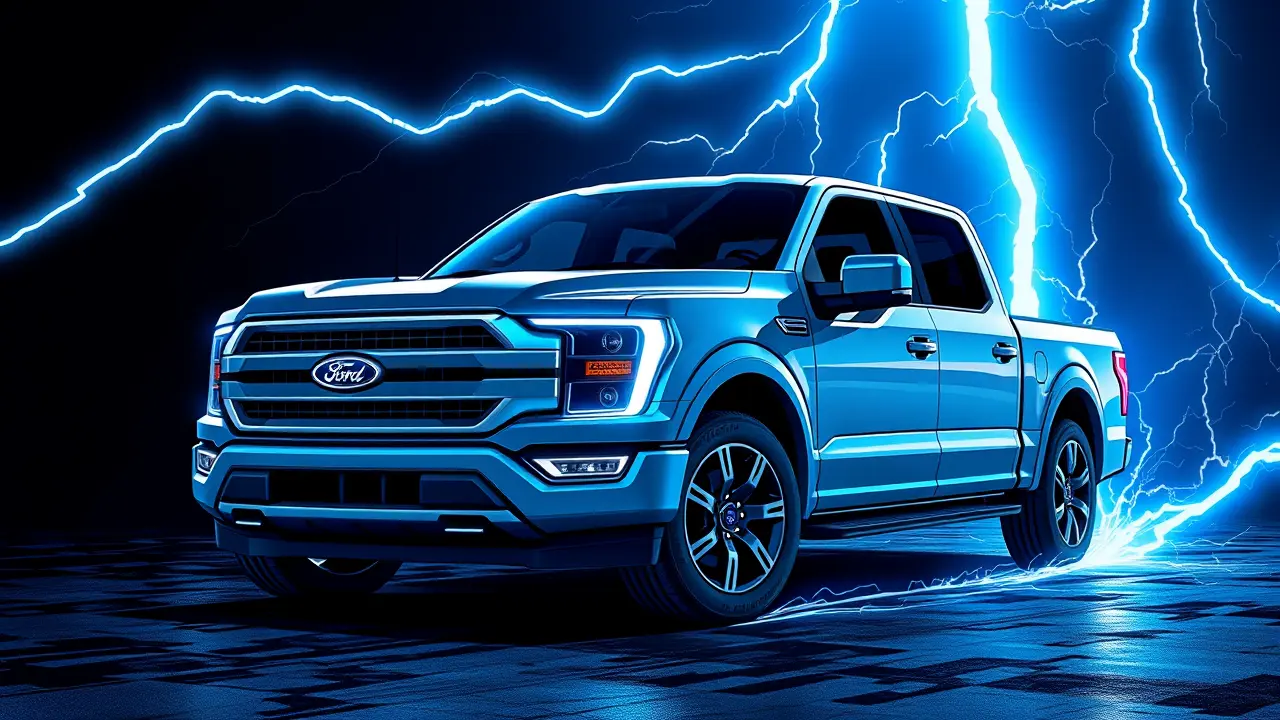
Otherauto & mobilityElectric Vehicles
Ford Executives Consider Discontinuing the F-150 Lightning Electric Truck.
TH
Thomas Green
3 hours ago7 min read3 comments
In a move that feels less like a strategic pivot and more like a retreat from the final frontier, Ford executives are reportedly contemplating pulling the plug on the F-150 Lightning, an electric truck that was supposed to be the vanguard of the American automaker's journey into the cosmos of electrification. This isn't just another corporate reshuffle; it's a potential course correction of astronomical proportions, a signal flare suggesting that the gravitational pull of the internal combustion engine—and its lucrative, familiar orbit—remains overwhelmingly strong for a legacy giant like Ford.The Lightning, a name evoking raw, untamable power, has been on the market for a mere three years, a blink of an eye in the automotive industry's timeline, yet its journey has been as turbulent as a rocket launch through a storm. Production was already paused, a quiet admission that Ford is prioritizing the gas and hybrid versions of its iconic F-Series, the cash-cow workhorses that have dominated the terrestrial landscape for decades.This potential discontinuation speaks volumes about the immense challenges of transitioning an industrial behemoth. It’s the equivalent of building a starship while still trying to sell the most popular pickup truck on the planet; the engineering, supply chain, and, most critically, consumer appetite for such a profound shift are Herculean tasks.The F-150 Lightning was more than just a vehicle; it was a symbol, a declaration that the heart of the American auto industry could beat on electrons. Its Pro Power Onboard system turned the truck into a mobile power station, a glimpse into a future where your vehicle is an integral part of your home's energy ecosystem.Yet, despite these innovations, it has faced headwinds reminiscent of the early skepticism towards private spaceflight: high initial costs, a charging infrastructure that still feels like a sparse network of interstellar waystations, and a customer base that, while curious, hasn't fully committed to leaving the atmosphere of fossil fuels. The broader context here is a solar system of competition.While Ford was launching the Lightning, competitors like Rivian were already establishing a foothold with their R1T, a vehicle built from the ground up as an EV, unburdened by the legacy architecture of a century of gasoline engines. And then there's Tesla's Cybertruck, a vehicle that looks like it drove out of a sci-fi film, creating a gravitational field of its own that has captured the public's imagination, for better or worse.Ford's deliberation is a stark reminder that the road to an electric future is not a straight, paved highway but a complex orbital path filled with debris from failed missions and the intense gravity wells of market realities. The consequences of this decision are manifold.For the EV evangelist, it’s a sobering moment, a potential setback that could slow the momentum of electrification in the most profitable and symbolic segment of the American auto market. For the traditionalist, it might be seen as a pragmatic, if not triumphant, return to sanity, a reaffirmation that hybrid technology is a more palatable and immediately profitable stepping stone.From an analytical perspective, this is a classic case of the innovator's dilemma playing out on a grand scale. Can a company so deeply rooted in the old paradigm truly pioneer the new one, or will it be consistently pulled back by the immense profitability of its established products? The fate of the F-150 Lightning is more than a product line decision; it's a live experiment in corporate evolution, a test to see if a titan of industry can successfully navigate the treacherous void between its storied past and an uncertain, electrified future.
#featured
#Ford
#F-150 Lightning
#production pause
#electric trucks
#automotive industry
#market strategy
Stay Informed. Act Smarter.
Get weekly highlights, major headlines, and expert insights — then put your knowledge to work in our live prediction markets.
© 2025 Outpoll Service LTD. All rights reserved.